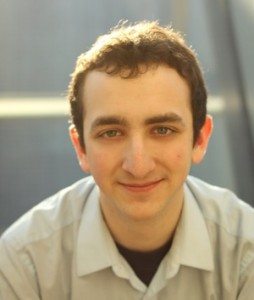
 Once a month, "Take a Ten" creates a brand new musical from scratch and uploads it for your podcast-listening pleasure. These funny and well-produced musicals -- which come in at a bite-sized 10 minutes -- are the perfect length to listen to as you wait for a late bus, work out on the treadmill, or even wait your turn at an audition. Their first episode, "Finding the Words", was shown at the Cyber Monday Sound Bites 10 Minute Musical Festival, where Katie Whetshell took home a best actress award for the evening.
Once a month, "Take a Ten" creates a brand new musical from scratch and uploads it for your podcast-listening pleasure. These funny and well-produced musicals -- which come in at a bite-sized 10 minutes -- are the perfect length to listen to as you wait for a late bus, work out on the treadmill, or even wait your turn at an audition. Their first episode, "Finding the Words", was shown at the Cyber Monday Sound Bites 10 Minute Musical Festival, where Katie Whetshell took home a best actress award for the evening.
StageBuddy had the opportunity to sit down with the creator of "Take a Ten", Andy Roninson -- who, between this great idea and two full-length musicals under his belt, is sure to start making waves within the musical theater industry very soon. Read our interview below to find out what he thinks about the creative potential of podcasts, the process of composing music, and more.
StageBuddy: What's your inspiration behind "Take a Ten"?
Andy Roninson: I play music all the time for work. So when I'm on the subway, I enjoy listening to people just talking. All I listen to are podcasts all the time, and musicals.
SB: Did the song "Steve" come before "Finding the Words"?
AR: No, but I loved that you asked that. Part of the concept behind "Take A Ten" is to have at least one song per episode that can be extractable without much context at all. So for "Steve", you just show up and you have a love song about a sound guy. You don't need anything else. Sure, it's nice to know the person singing is an actor forgetting his lines, and he's got a secret crush, but you don't need to know any of that. It's nice to have a song that doesn't take 10 minutes to set it up.
SB: What's your recording process like?
AR: It takes about one month. We like to have a read-through when possible and at least one music rehearsal. Recording sessions last about an hour per song. I set up in my bedroom, open up GarageBand, and that's it. It's the most barebones setup, other than the mic (which is a pretty damn good mic for the price). Everything else is created by playing the keyboard into the computer and it comes out sounding like strings, drums, or whatever. The only live instrument besides the voice is the guitar, and even then, sometimes it's a fake guitar. I have actors stand in my closet, which serves as a cheap vocal booth, but it gets the job done. I look at this more as a writing venture more than as an engineering thing.
SB: What social media platforms are you utilizing to connect with your audience?
AR: We have the Facebook Page and the Twitter handle; that's kind of it for right now. Chris Critelli (Producer/Writer/Actor) handles the social media stuff. I'm the kind of guy that has had a Twitter for about 2 or 3 years and have about 5 tweets because there is nothing I really want to say especially in 140 characters.
SB: When did you make your first contact with music?
AR: My parents made me take piano lessons when I was 6, and I quit right away because I hated it. When I was 11 they started making my little brother take piano lessons and I just wanted to show off that I could already play everything in his beginner book, but then it became fun, something for myself.
SB: What do you enjoy most about composing?
AR: Being done and not having to worry about it. When I'm in the middle of it, it feels like work, but I like that idea. I like the concept of not working on inspiration. It's not about me or how I feel or what I want to express. It's about: "This character needs this from that person, it's set in this country and this time period, which influences the music; then this chord can go to that chord, and if you resolve this way, the melody should go like this," and so on. I look at it very scientifically.
SB: Do you have any advice for a young composer?
AR: Listen! I would say listen to the classics. It's easy to latch on to what's coming out now because it's in our language so naturally. But sometimes, that leads to an incestuous sound. Musical theater out of musical theater without knowing where it's coming from. You have to know other artists, not just Jason Robert Brown. And listen to everything outside of musical theater. Debussy, Duke Ellignton, Biggie -- it's important to know everyone. Know music created by musicians so you can build a wider vocabulary.
SB: Will we see some of these in full production in the future?
AR: A plan of mine is to have at least one live performance where we do six episodes, three old ones and three new ones, and then release the new ones as live episodes. It would be tricky to work with live recording equipment. My dream would be for it to be off book in front of old time microphones, like an old-fashioned, live radio taping.
Listen to Podcast 1. "Finding the Words"